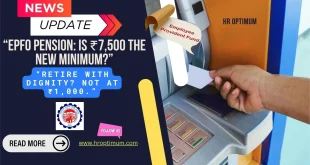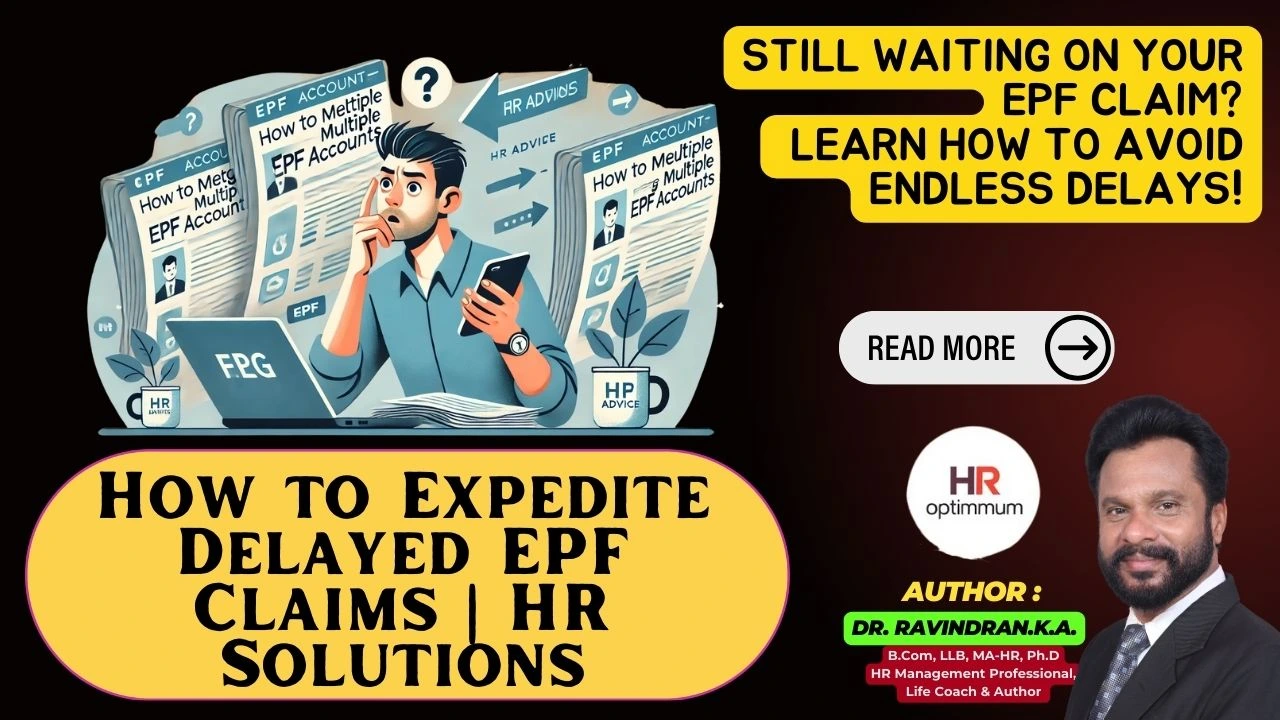How to Resolve EPF Credit Not Received: HR Tips
Did you know that 25% of EPF withdrawal and transfer claims were rejected in 2022-23? This shows how common problems with Employees’ Provident Fund (EPF) credit are. As an HR pro, knowing the EPF system well is key to solving these issues.
Thank you for reading this post, don't forget to subscribe!This article will give you the tools and steps to make sure your employees get their EPF credits on time. By understanding the EPF system, fixing common problems, and following the right steps, you can help your team’s financial security.
Key Takeaways
- Understand the EPF system, eligibility, and membership requirements to proactively address EPF credit issues.
- Identify common EPF credit problems, such as discrepancies in employee details, delayed contributions, and system-related challenges.
- Learn the necessary steps to resolve EPF credit not received, including communicating with the EPFO, providing accurate documentation, and escalating unresolved cases.
- Familiarize yourself with the EPFO grievance redressal process and utilize available resources, such as the EPFiGMS portal and social media channels.
- Stay up-to-date with the latest EPF regulations and changes to ensure your organization’s compliance and timely settlement of EPF claims.
Understanding the Employees’ Provident Fund (EPF)
Eligibility and Membership
The Employees’ Provident Fund (EPF) is a key social security scheme in India. It helps employees save for retirement. All companies with 20 or more workers must join the EPF Act.
Workers, including those on daily wages or contracts, are automatically part of the EPF. The employer pays 12% of the worker’s salary into the EPF. Workers also contribute 12% of their salary, building a retirement fund.
Workers can use the EPF i Grievance Management System (EPFIGMS) portal if their EPF contributions have been deducted but not deposited by the employer. They need to show proof like salary slips and EPF statements to file a complaint.
The EPFO has over 6.42 crore members, making it huge in India. It manages over ₹17 lakh crores, showing its massive size.
The EPF Scheme 1952 builds a big fund for retirement, with both employee and employer contributions. The Employees Pension Scheme 1995 offers a pension in old age, funded by the employer and the Government. The Employees Deposit Linked Insurance Scheme 1976 provides insurance if a worker dies while working, based on their PF balance.
Employers must take out EPF contributions from wages and add employer and EDLI contributions. They must send these to EPF with returns right after paying salaries. EPF services are online, aiming to save costs, make things easier, and follow rules.
Troubleshooting EPF Credit Issues
When an employee doesn’t get their EPF credits on time, it’s frustrating. But, as an HR pro, you can fix these problems early. This ensures your employees get their EPF benefits right away.
One big issue is when employers don’t pay EPF contributions on time. This might be because of mistakes or money problems. It’s important to keep track of these payments and work with the EPFO to fix any problems.
Another issue is wrong employee info in EPF records. This can cause delays in getting EPF claims or transfers. Make sure to check and update employee info in the EPF system often to avoid these problems.
Also, delays in processing EPF claims or transfers can cause problems. This might be because of a lot of cases or technical issues. It’s key to stay on top of this and follow up with the EPFO to get things fixed quickly.
| EPF Credit Issue | Possible Reasons | Recommended Actions |
|---|---|---|
| Late or non-payment of EPF contributions | – Administrative errors – Financial constraints |
– Monitor contributions closely – Coordinate with EPFO to resolve discrepancies |
| Incorrect employee information in EPF records | – Misspelled names – Outdated contact details |
– Regularly update employee information in the EPF system |
| Delays in processing EPF claims or transfers | – Backlog of cases – Technical glitches in EPFO systems |
– Follow up with EPFO to ensure timely resolution |
By tackling these common EPF credit issues early, you can help your employees get their EPF benefits on time. Remember, being proactive and keeping in touch with the EPFO are key to solving these problems.
“Proactive identification and resolution of EPF credit issues can make a significant difference in the financial well-being of your employees.”
How to Resolve EPF Credit Not Received
As an HR pro, fixing EPF credit issues is key to your team’s financial health. It’s important to quickly solve problems like delayed credits or account mismatches. Here’s how you can fix these issues and make sure your team is happy.
- Verify the EPF contribution details: Always check the EPF contributions for each employee. Make sure the right amounts are being taken out and sent to the EPF.
- Communicate with the EPF authorities: If there are any issues with EPF credits, contact the regional EPF office right away. Give them all the needed documents to fix the problem.
- Assist employees in tracking their EPF accounts: Tell your team to check their EPF account balances and transactions often. They can do this through the EPFO portal, mobile app, or by calling the helpline.
- Initiate timely EPF claim and transfer processes: When an employee leaves, start the EPF claim and transfer process quickly. This helps avoid delays in getting their EPF money.
By taking these steps, you can troubleshoot EPF credit delays, fix EPF account mismatches, and make sure your team gets their EPF credits without trouble.
| Key EPF Statistics | Value |
|---|---|
| EPFO interest rate for FY 2022-23 | 8.15% |
| Employee’s monthly EPF contribution | 12% of income |
| Employer’s EPF contribution | 3.67% of salary |
| Remaining employer contribution (EPS) | 8.33% |
By knowing the EPF system well and acting fast, HR pros can solve EPF credit problems. This makes sure your team has a smooth experience.
“Timely resolution of EPF credit issues is key to keeping employee trust and satisfaction high.”
Conclusion
Handling EPF credit issues is key for HR pros in India. They must grasp the EPF contribution management system. This includes spotting and fixing common problems and following the right steps.
HR teams should talk well with EPF authorities and keep employees informed. This helps in keeping up with rules and making retirement planning easier for everyone.
HR pros need to keep up with new EPF rules and use the right tools. They should also promote openness and responsibility. This way, they can manage EPF contributions well and solve any issues quickly.
Fixing EPF credit issues is not just about following the law. It’s also about caring for employees and keeping them happy. By focusing on EPF credit resolution, HR can help the financial health and trust of their team.
Thank You!
Thank you for reading this article! If you found it helpful, please share it with your colleagues and friends. We value your feedback, so feel free to leave a comment below and let us know your thoughts.
FAQ
What is the Employees’ Provident Fund (EPF) and who is eligible for it?
The Employees’ Provident Fund (EPF) is a mandatory social security scheme in India. It provides retirement benefits to eligible employees. All establishments with 20 or more employees must be covered under the EPF Act.
Eligible employees, including those on daily wages, piece-rate, or contract, are automatically enrolled. This means they get to benefit from the EPF scheme.
Why might an employee not receive their EPF credits on time?
There are several reasons why an employee might not get their EPF credits on time. These include delayed contributions by the employer. Also, errors in EPF account details or issues with the EPF system can cause delays.
What are the common EPF credit issues that HR professionals should be aware of?
HR professionals should know about common EPF credit issues. These include late or non-payment of EPF contributions by the employer. Also, incorrect employee information in EPF records and delays in processing claims or transfers are common.
What steps should HR professionals take to resolve EPF credit issues?
To resolve EPF credit issues, HR professionals should follow these steps. First, verify the EPF contribution details. Then, communicate with the EPF authorities.
Next, assist employees in tracking their EPF accounts. Lastly, initiate timely EPF claim and transfer processes.
How can HR professionals ensure that their employees receive their EPF benefits in a timely and accurate manner?
HR professionals can ensure timely and accurate EPF benefits by effective communication with EPF authorities. They should also engage with employees and manage EPF contributions proactively. This helps maintain compliance and provides a smooth retirement planning experience for the workforce.
 hroptimum
hroptimum



